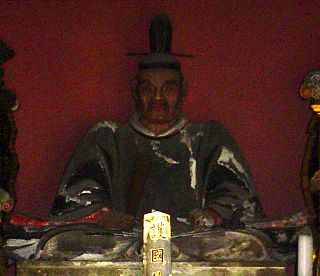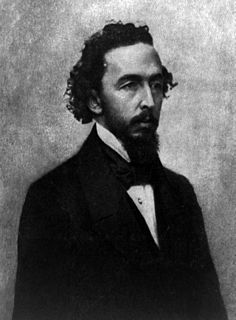A Quote by W. S. Gilbert
Strike the concertina's melancholy string!
Blow the spirit-stirring harp like any thing!
Let the piano's martial blast
Rouse the Echoes of the Past
Related Quotes
There's a feeling of power in reserve, a power that drives right through the bone, like the shiver you sense in the shaft of an axe when you take it into your hand. You can strike, or you can not strike, and if you choose to hold back the blow, you can still feel inside you the resonance of the omitted thing.
I don't doubt that at the dawn of martial arts, the main goal was to beat up one's opponents in the most effective way possible. But then, indirectly, the alchemy of martial arts began to strike some chords deep within the spirit of many individuals, transforming living war-machines into poets, artists, and philosophers.
For life is a fire burning along a piece of string--or is it a fuse to a powder keg which we call God?--and the string is what we don't know, our Ignorance, and the trail of ash, which, if a gust of wind does not come, keeps the structure of the string, is History, man's Knowledge, but it is dead, and when the fire has burned up all the string, then man's Knowledge will be equal to God's Knowledge and there won't be any fire, which is Life. Or if the string leads to a powder keg, then there will be a terrific blast of fire, and even the trail of ash will be blown completely away.
It is only by demanding the impossible of the piano that you can obtain from it all that is possible. For the psychologist this means that imagination and desire are ahead of the possible reality. A deaf Beethoven created for the piano sounds never heard before and thus predetermined the development of the piano for several decades to come. The composer's creative spirit imposes on the piano rules to which it gradually conforms. That is the history of the instrument's development. I don't know of any case where the reverse occurred.
Who would condescend to strike down the mere things that he does not fear? Who would debase himself to be merely brave, like any common prizefighter? Who would stoop to be fearless--like a tree? Fight the thing that you fear. You remember the old tale of the English clergyman who gave the last rites to the brigand of Sicily, and how on his death-bed the great robber said, 'I can give you no money, but I can give you advice for a lifetime: your thumb on the blade, and strike upwards.' So I say to you, strike upwards, if you strike at the stars.
We are on strike against martyrdom—and against the moral code that demands it. We are on strike against those who believe that one man must exist for the sake of another. We are on strike against the morality of cannibals, be it practiced in body or in spirit. We will not deal with men on any terms but ours—and our terms are a moral code which holds that man is an end in himself and not the means to any end of others.



































